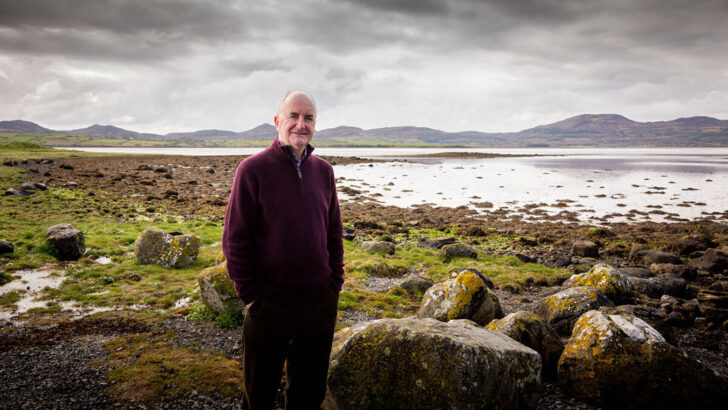This fascinating memoir by Tommie Gorman provides a most informative account of the civil and political events in Ireland – North and South – during his time as a journalist and broadcaster.
It follows the course of a very varied life. Tommie was born at Hazelwood, near Sligo, in April 1956. He received his early education at the Convent and Marist Primary Schools and Summerhill College. In 1975-77 he attended the Rathmines School of Journalism. Towards the end of the course, he visited John Healy, who resided nearby in Terenure.
Healy was a legend in Irish journalism. At that time with his long-time friend, Jim Maguire, he was planning to launch a new weekly provincial newspaper with the title: Western Journal. At the interview Healy told Tommie there would be a place for him in the new enterprise.
Appointed
In due course Tommie was appointed as the Western Journal’s Sligo correspondent. Two years later he became the editor, and he recalls the herculean efforts the 30 strong staff had to make to keep the paper financially viable.
Tommie joined RTÉ in 1980 as its North West correspondent. Subsequently he was the station’s Europe editor in 1989-2001 and its Northern editor in 2001-2021.
As RTÉ’s north west correspondent his beat included Derry City and its hinterland. There he witnessed at first hand the atrocities, killings, mayhem and riots of the so mildly called ‘Troubles’, the conflict between the Crown forces and the Provisional IRA.
He adds back stories which make intelligible the hard-line attitudes of both Nationalist and Unionist leaders”
In happier, or at least less sad times, he reported on the 1994 IRA ceasefire, the 1998 Good Friday Agreement and the 2007 decision by the Democratic Unionist Party and Sinn Féin to enter a power-sharing government. In his final years he covered the torturous and never-ending efforts being made to ensure that the Good Friday Agreement produced an administration which would be acceptable to and benefit both the Unionist and Nationalist communities.
Tommie was tenacious in seeking out and interviewing persons who were significant in the public discourse and events of his time as a journalist. He recalls some of those important interviews; he does so in positive terms and without a hint of the cynicism one associates with some journalists.
He acknowledges that, while Gerry Adams’s denial of his past membership of the IRA was a fiction, if Adams varied from his stated position, he was likely to be arrested and prosecuted. He found Martin McGuinness to be fair-minded, helpful and personable.
Good Friday
Tommie highlights the contribution of David Trimble to the achievement of the Good Friday Agreement and is equally commendable in his comments on Peter Robinson’s efforts to see it implemented. In each instance he adds back stories which make intelligible the hard-line attitudes of both Nationalist and Unionist leaders.
For instance, in the case of Arlene Foster, her father barely survived an assassination attempt by the IRA, and the school bus (note school bus) in which she was travelling to school was blown-up by an IRA bomb. However, few readers will agree with his non-judgemental treatment of the Rev. Ian Paisley.
Tommie’s memoir is a wonderful overview of his life and times and exudes his natural optimism and firm belief in the goodness of humanity”
Like most Irish people, Tommie is a keen follower of sport. His predilection is for soccer. This is owing to the fact that a member of staff, Fr Michael Devine, introduced the game to Summerhill College.
Tommie’s favourite team is his home-town Sligo Rovers and he writes lovingly about their wins and defeats. He made his own the story of the debâcle surrounding the Republic of Ireland team’s participation in the 2002 World cup.
At the age of 37 Tommie discovered he had a rare form of cancer, neuro-endochrine tumours (NETs). He describes in considerable detail the extensive treatment he has had to cope with it. Proactive as ever, with others he set up a support group to assist the 3,000 other Irish people who are struggling with that rare medical condition. He himself still requires a monthly injection. His work to educate us all in this area has been tremendous.
Tommie’s memoir is a wonderful overview of his life and times and exudes his natural optimism and firm belief in the goodness of humanity. His book, and life, is a reminder in these days of RTÉ bashing just how much the nation owes RTÉ, especially those who work in news and current affairs.
Never Better: My Life in Our Times,
by Tommie Gorman
(Allen & Unwin/ Atlantic Books, €28.00/£20.00)


 Tommy O’Gorman in the western landscape he loves.
Tommy O’Gorman in the western landscape he loves. 